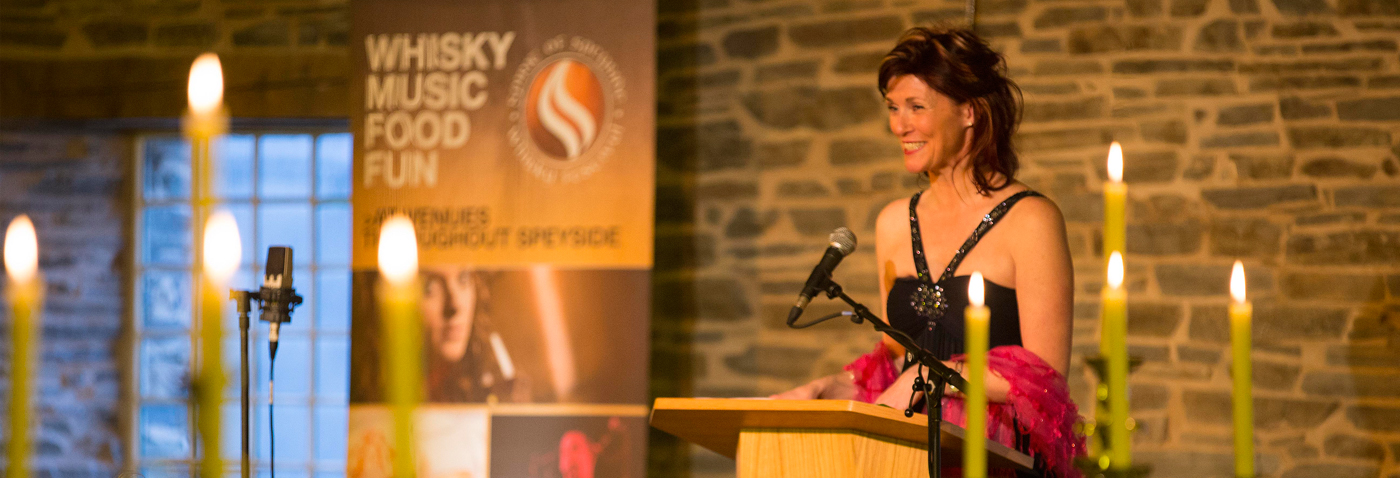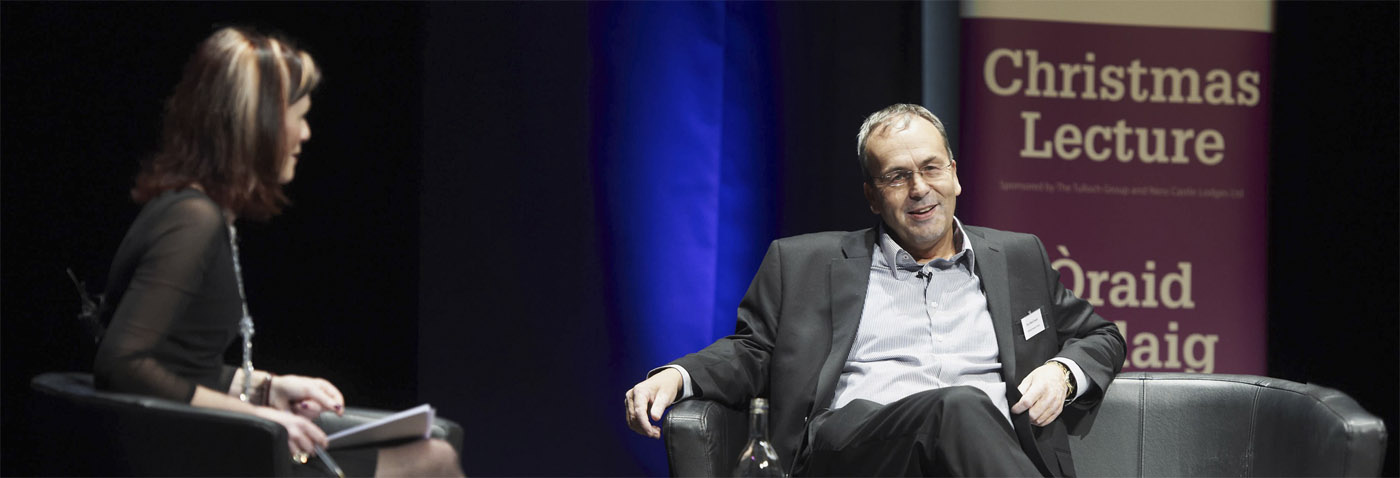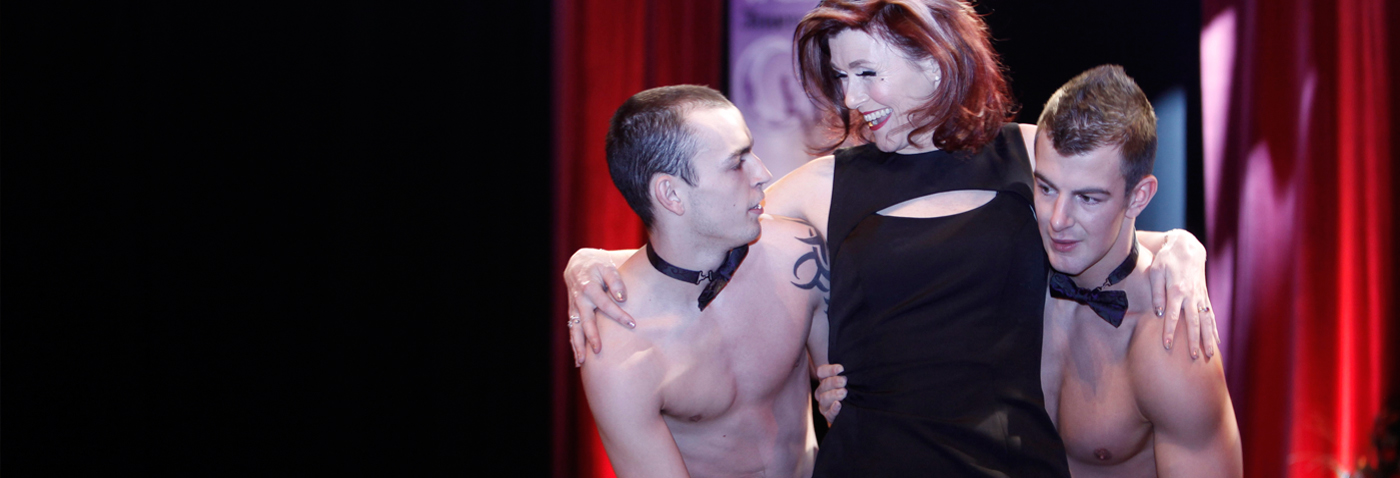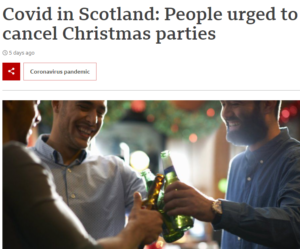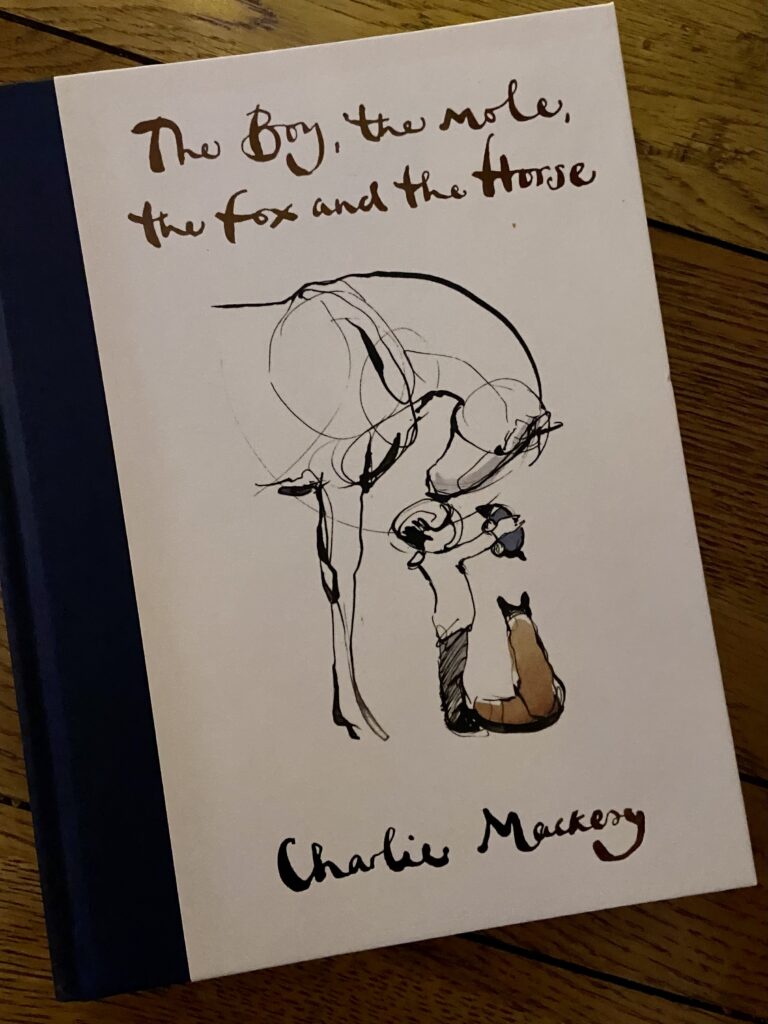 There’s a copy of Charlie Macksey’s book ‘The Boy, the Mole, the Fox and the Horse’ on the table beside my bed, and I read it from time to time. It’s not a long book, nor a particular page-turner, it’s more a book to flick through and ponder. It’s a quiet book. It reassures and soothes the soul.
There’s a copy of Charlie Macksey’s book ‘The Boy, the Mole, the Fox and the Horse’ on the table beside my bed, and I read it from time to time. It’s not a long book, nor a particular page-turner, it’s more a book to flick through and ponder. It’s a quiet book. It reassures and soothes the soul.
Described by someone far more eloquent than I am as ‘a wonderful window into the human heart’ it reminds us that as humans, we are all flawed, and all a little bit scared. It reminds us that sometimes the bravest thing we can do is ask for help, that one of our greatest freedoms is that we have the choice over how we react to things, and that ultimately the most important things we have are kindness, love, and friendship. All of which might just be improved with a slice of cake.
Sparse and densely meaningful
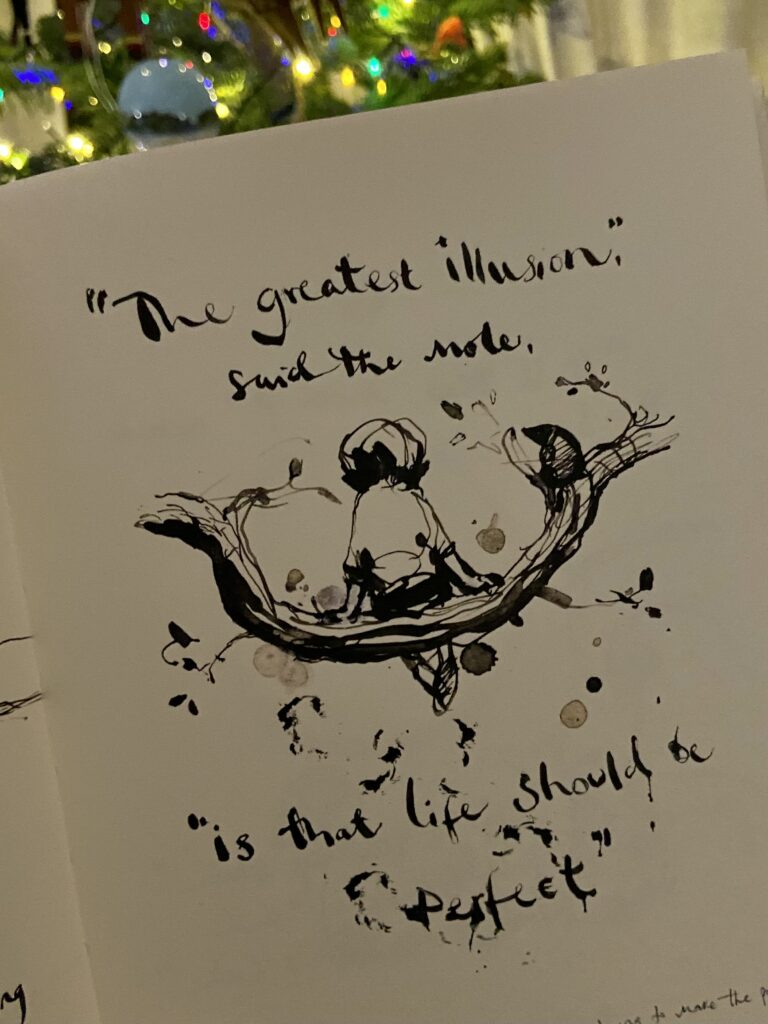 Macksey’s text is handwritten. His sparse, yet densely meaningful words are punctuated with sketches of the four unlikely friends as they travel through an unspecified wilderness towards an unknown destination. Every time I pick up the book it’s a different page that speaks to me. Last night, after a weekend of Christmas preparations – decorating the tree, writing cards, wrapping presents, trying to work out what we will all eat – the page that resonated most contained just twelve words: “The greatest illusion”, said the mole, “is that life should be perfect”.
Macksey’s text is handwritten. His sparse, yet densely meaningful words are punctuated with sketches of the four unlikely friends as they travel through an unspecified wilderness towards an unknown destination. Every time I pick up the book it’s a different page that speaks to me. Last night, after a weekend of Christmas preparations – decorating the tree, writing cards, wrapping presents, trying to work out what we will all eat – the page that resonated most contained just twelve words: “The greatest illusion”, said the mole, “is that life should be perfect”.
At this time of year, the pressure to be perfect is greater than ever. We’re urged to wear the perfect Christmas outfit and spend shed-loads of money on the perfect gifts. We must find and decorate the perfect tree, send perfect Christmas cards, and fill every available cavity in our bodies with the perfect food and drink, over, and over, and over again. And then we must photograph it all (and here I’m as guilty as the rest) and put our perfect lives on Instagram, so everyone else can see how perfectly we’re doing everything.
Let’s scrap the perfection
Let’s scrap all that. What really is important isn’t the stuff beneath that beautifully decorated tree, but the people who will be in the house with us, enjoying its light and its collection of vulgar and tasteless decorations, each one a memory from three decades of family life. Of course, lovely food is lovely, but it’s not the food and wine I’ll remember after the dishwasher has been loaded (preferably by someone else) but the conversation, the laughter and yes – those fiery, unscheduled differences of opinion. (Thanks to Charlie Macksey’s wisdom, I’m not expecting perfection.)
As I write, I’m fearful, that with the Omicron variant taking hold, our family might not be able to celebrate together again this year. No matter how many presents I wrap, cards I write, mince pies I make, or cocktails I shake, it’s people who make Christmas perfect, not props. So, with apologies to Mariah Carey, all I want for Christmas, is them.
Muffin Walloping – who’s in?
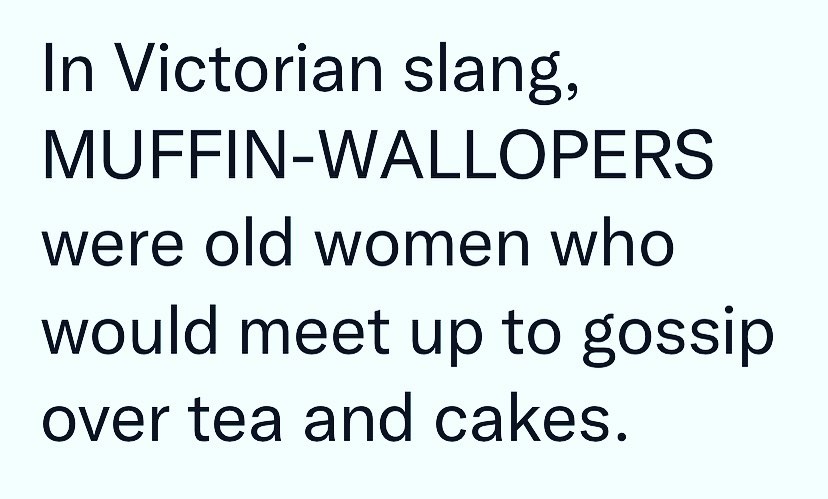 Susie Dent, that self-described ‘woman in Countdown’s Dictionary Corner’, is a wonderful follow on Twitter. With a finger firmly on the pulse of the feeling in the country, she shares delicious, obscure words, and their meanings. On regular repeat just now is the 17th century word ‘latibulate’, meaning to hide in a corner until the situation improves.
Susie Dent, that self-described ‘woman in Countdown’s Dictionary Corner’, is a wonderful follow on Twitter. With a finger firmly on the pulse of the feeling in the country, she shares delicious, obscure words, and their meanings. On regular repeat just now is the 17th century word ‘latibulate’, meaning to hide in a corner until the situation improves.
Timely as that it is, it doesn’t compare to the Victorian term of ‘Muffin-walloper’ which I came across elsewhere last week. It’s a term used to describe old women who meet for tea, cake and to gossip.
The phrase leaves a little to be desired (less of the ‘old’ please, and hints there of deep impropriety and an element of pain) but it reminds me of nights out with my Muffin-walloping friends. Just replace references to tea with prosecco, and cake with crisps, and we’re there. You know who you are!
Covid? Communication and compensation, please!
As I write, we’re being told to cancel Christmas parties. But who is picking up the tab for deposits what won’t be returned? For food that has been ordered but will go uneaten? For bands and DJs who won’t now play?
Half-baked advice without clearly communicated rules and leadership creates confusion and resentment and – for the hospitality sector – an impossible situation. Either events should be cancelled, with proper financial compensation for affected businesses, or it’s a festive party season as usual.
If this new variant is as devastating as we’re led to believe, I hope it’s the former.

